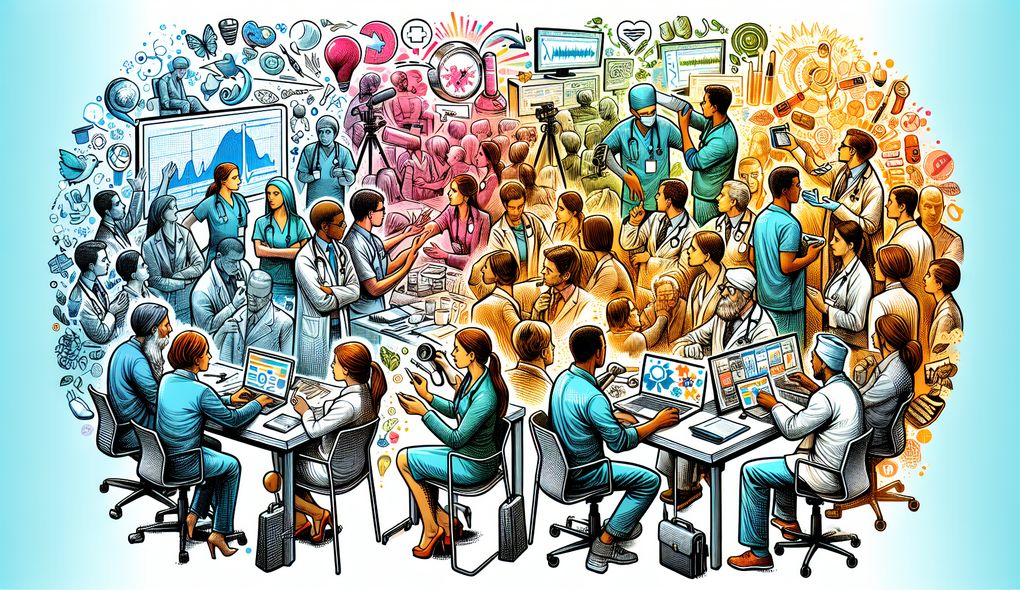Tell us about a time when you had to make a data-driven decision based on the communication metrics and feedback you received.
SENIOR LEVEL

Sample answer to the question:
In my previous role as a Health Communications Specialist, I had to make a data-driven decision based on communication metrics and feedback. We were running a social media campaign to promote a new health initiative. I tracked the engagement metrics, such as likes, comments, and shares, and also collected feedback through surveys and focus groups. Based on the data, I identified that our target audience responded positively to videos and infographics, but not as much to written articles. I presented these findings to the team and recommended reallocating our resources to create more video and infographic content. As a result, our engagement metrics increased significantly, and we reached a wider audience. This experience taught me the importance of using data to drive decision-making in health communications.
Here is a more solid answer:
In my previous role as a Senior Health Communications Specialist, I was responsible for developing and implementing a communication strategy for a public health campaign. During the campaign, I closely monitored the communication metrics, such as website traffic, social media engagement, and email open rates. I also collected feedback from our target audience through surveys and focus groups. Analyzing the data, I noticed a significant drop in website traffic after a certain point in the campaign. Digging deeper, I found that our content was not resonating with our audience. To address this issue, I conducted a content analysis and identified the key themes and topics that our audience was interested in. Based on this analysis, I made data-driven recommendations to the team, suggesting changes to the content strategy and creating more engaging and relevant materials. As a result, we saw a significant increase in website traffic and engagement metrics, and our campaign reached a larger audience. This experience showcased my ability to use data to drive decision-making and improve communication effectiveness.
Why is this a more solid answer?
The solid answer provides a more detailed and specific example of a data-driven decision the candidate made based on communication metrics and feedback. It demonstrates their ability to analyze data, identify issues, and make recommendations to improve communication strategies. However, it can be further improved by incorporating more examples of using digital communication tools and social media platforms, as well as translating scientific and technical health information into accessible language. Additionally, it can provide a clearer explanation of the impact of the decision on the overall campaign.
An example of a exceptional answer:
In my previous role as a Senior Health Communications Specialist, I led a team in developing and implementing a comprehensive communication strategy for a nationwide health campaign. Throughout the campaign, we closely monitored various communication metrics, including website analytics, social media engagement, email open rates, and call center data. To gather feedback, we conducted surveys, focus groups, and interviews with the target audience and stakeholders. The data revealed several areas of improvement, such as low engagement on social media and confusion around the campaign messaging. Analyzing the data, we identified the need to leverage digital communication tools and social media platforms to reach our audience more effectively. We developed a plan to create impactful videos, interactive infographics, and shareable content. Additionally, we translated scientific and technical health information into accessible language through simplified visuals and plain language summaries. As a result of these data-driven decisions, we saw a significant increase in social media engagement, website traffic, and overall campaign awareness. This experience highlighted my exceptional skills in using data and metrics to drive communication strategies, as well as my ability to translate complex health information into accessible language.
Why is this an exceptional answer?
The exceptional answer goes above and beyond the solid answer by providing a more comprehensive and detailed example of a data-driven decision the candidate made. It demonstrates their ability to not only analyze metrics and feedback but also to lead a team and implement a comprehensive communication strategy. The answer showcases their expertise in using digital communication tools, social media platforms, and translating scientific and technical health information into accessible language. The impact of the decision on the overall campaign is clearly explained. However, the answer can be further improved by providing specific metrics and quantifiable results to demonstrate the effectiveness of the decision.
How to prepare for this question:
- Familiarize yourself with different communication metrics and methods of gathering feedback.
- Develop a solid understanding of digital communication tools and social media platforms.
- Practice analyzing data and identifying key insights and patterns.
- Highlight any experience you have in translating scientific and technical information into accessible language.
- Prepare examples of past projects or campaigns where you used data to make informed decisions and improve communication effectiveness.
What are interviewers evaluating with this question?
- Exceptional written and verbal communication skills
- Proficiency in digital communication tools and social media platforms
- Ability to translate scientific and technical health information into accessible language
- Critical thinking and problem-solving skills
- Expertise in measuring and analyzing communication impact

